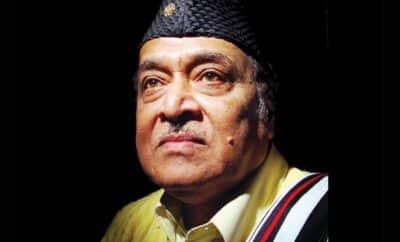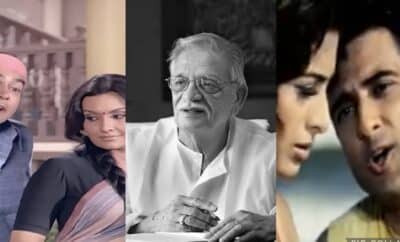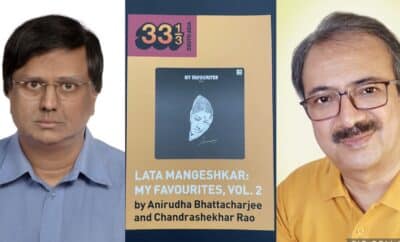Collections
Celebrating the Victory of Good Over Evil Within Us – Dussehra
मंगल भवन अमंगल हारी
द्रबहु सुदसरथ अचर बिहारी
राम सिया राम सिया राम जय जय राम
हो, होइहै वही जो राम रचि राखा
को करे तरफ़ बढ़ाए साखा
हो, धीरज धरम मित्र अरु नारी
आपद काल परखिये चारी
हो, जेहिके जेहि पर सत्य सनेहू
सो तेहि मिलय न कछु सन्देहू
हो, जाकी रही भावना जैसी
रघु मूरति देखी तिन तैसी
रघुकुल रीत सदा चली आई
प्राण जाए पर वचन न जाई
राम सिया राम सिया राम जय जय राम
हो, हरि अनन्त हरि कथा अनन्ता
कहहि सुनहि बहुविधि सब संता
राम सिया राम सिया राम जय जय राम
Do you find these lines nostalgic? For those who are not accustomed with the chaupaiyan also must be knowing these lines certainly. They are there in almost all the movies by Rajshri Productions. Besides these movies, these lines used to be a regular feature in the TV series Ramayan (sung during the end credits of each episode). Ramayan had mesmerized all the people old and young alike. Everyone remained glued to the TV sets on Sunday mornings. The streets lay deserted. The entire family sat together to watch. Those who did not have television went to their neighbour’s place. The effect was such that some of the audience started worshipping Arun Govil as Ram and Dipika Chikhliya as Sita. However, before the television era or before Ramayan (TV series), people were mesmerized by the Ramleela on stage. It still is a major part of celebration during Navratri. Ramleela is not just enactment of the scenes from Ramayan, it is a celebration. A celebration of nine nights (Navratri) which culminates with burning the giant effigies of Ravan, Meghnad and Kumbhkaran. Celebrating the victory of good over evil. In India, Ramleela celebrations in Ayodhya, Varanasi, Vrindavan, Uttarakhand, Madhya Pradesh and Bihar are widely known. Ramlila Maidan in Delhi is famous for some its best staged Ramleelas. The verses from Ramcharitmanas are used as dialogues or they are translated in the regional dialect for the local people to understand. According to the traditions and beliefs, the first Ramleela celebration in form of enactment based on Ramcharitmanas on the stage was organised by Megha Bharat, a disciple of Goswami Tulsidas. It dates back to the 17th century. Ramcharitmanas is considered as one of the greatest works in Hindi literature. It is an epic poem written by Tulsidas in Awadhi, a dialect of Hindi language. It has 3 separate conversations. 1. Between Shiva and Parvati, 2. Between Sages Bhardwaj and Yajnavalkya and 3. Between Garuda and Kakbhshundi. The poem covers 7 Kands from the birth of Ram in Ayodhya to his return to Ayodhya after killing Ravan.
Bal Kand
Ayodhya Kand
Aranya Kand
Kishkindha Kand
Sundar Kand
Lanka Kand
Uttar Kand
The Ramleela celebrations play the stories from these Kands. It is a religious as well as cultural event bringing people together irrespective of religion, caste and age. Organized in a temporary open air theatre, it has the local people enacting and traditionally reciting the hymns and chants. It is usually structured for the audience to participate and recite the hymns along with the actors. The audience immerse themselves in the joys and sorrows with the artists and in the end celebrate the victory of Ram by participating in burning the effigies and welcoming Ram, Sita and Lakshman back in Ayodhya.
Our Hindi films too have depicted these plays and Ramleela celebrations in form of songs. Let us have a glimpse of those songs and celebrate the victory of good over evil, being honest to ourselves and coming out of our comfort zones to achieve our dreams in life. Conquering all that is evil within us, crossing the boundaries of limits, to cross the line we have drawn for ourselves and celebrating our own triumphs.
Just as Neeraj says in his lines –
Jab teer chale sachchai ke
Aakhir toh buraai haar gayi
Aur Ram ki sena naav bina
Pal bhar mein sagar paar gayi….
1. Ab Dilli Duur Nahin (1957) – Children celebrate the event in their own way. Asha Bhosle, Geeta Dutt, Shamshad Begum and chorus sing to the music by Dattaram.
2. Resham Ki Dori (1974) – Manna Dey recites the words by Neeraj composed by Shankar Jaikishan.
https://youtu.be/M463Wzz2nFw
3. Aanchal (1980) – Pancham composes this unusual song rendered by Kishore Kumar and Sapan Chakravarty. On stage we can enjoy the Ramleela enacted by Rajesh Khanna, Prem Chopra, Abhi Bhattacharya and Rekha.
4. Charnon Ki Saugandh (1988) – Kishore Kumar sings this Ramleela number composed by Laxmikant Pyarelal.
https://youtu.be/rjYFDnIpeqk
5. Aks (2001) – An unusual Ramleela enacted in the family. Anu Malik gives music to this Ramleela and lyrics by Gulzar.
6. Swades (2004) – A beautifully composed Ramleela by A R Rahman, rendered by Madhushree, Vijay Prakash and Ashutosh Gowarikar and wonderfully worded by Javed Akhtar.
7. Delhi 6 (2009) – All credit this amazing Ramleela goes to A R Rahman and Raghuvir Yadav. Just as we have Geet Ramayan in Marathi, there’s a complete narration of Ramleela by Raguvir Yadav which you can listen here.



